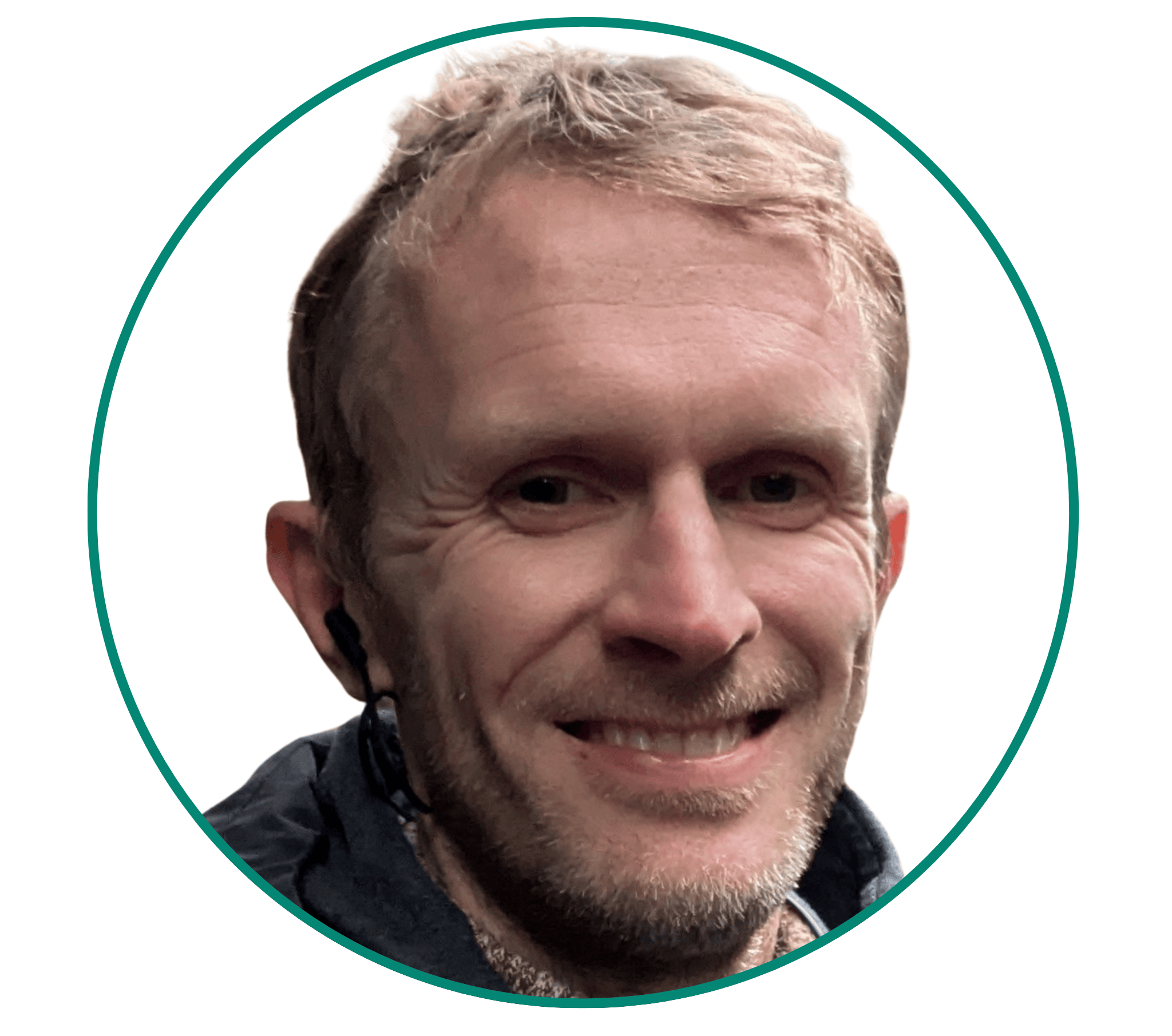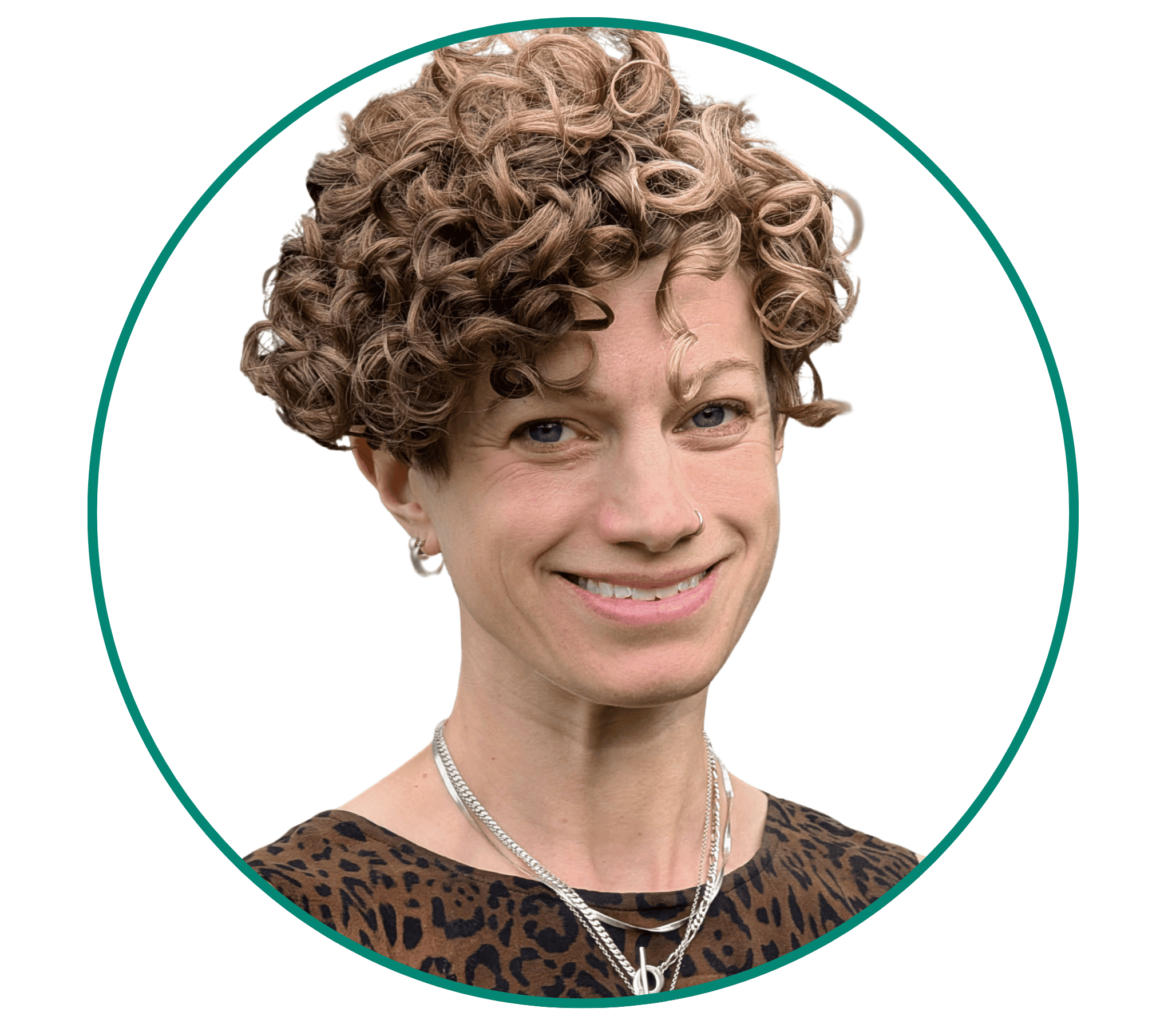A few weeks ago we welcomed two new members of staff to the DPC team. Garth Stewart has joined us to take on the role of Head of Good Practice and Dorothy Waugh is our new Head of Workforce Development.
We are very much enjoying working with them and finding out more about them, and we wanted to take this opportunity to introduce them to the wider community too! To this end, I sat them down with a (virtual) cup of tea and all the (most essential) digital preservation-related questions…and it went a bit like this…
Jen: How did you get into digital preservation? Tell us a bit about your journey so far.
 Garth: I graduated as an archivist in 2010, and my first professional roles included little nuggets of digital preservation practice: from managing digitised images, to internal advocacy on good e-recordkeeping. Things went up a gear when I joined National Records of Scotland (NRS) in 2014. I was based in the e-Records Unit (now Digital Records Unit - DRU) and was tasked with engaging with stakeholders on digital preservation (a lot of fun); and developing a web archiving service for the institution (a lot of work, but incredibly satisfying). NRS presented me with superb training and development opportunities with amazing, experienced colleagues. Crucially, I actually had to ‘do’ digital preservation and web archiving – not just think about it. I found ‘doing’ digital preservation the most effective (read: sobering!) self-assessment method, letting me see what I didn’t ‘know’ or couldn’t ‘do’: that’s still very much the case today!
Garth: I graduated as an archivist in 2010, and my first professional roles included little nuggets of digital preservation practice: from managing digitised images, to internal advocacy on good e-recordkeeping. Things went up a gear when I joined National Records of Scotland (NRS) in 2014. I was based in the e-Records Unit (now Digital Records Unit - DRU) and was tasked with engaging with stakeholders on digital preservation (a lot of fun); and developing a web archiving service for the institution (a lot of work, but incredibly satisfying). NRS presented me with superb training and development opportunities with amazing, experienced colleagues. Crucially, I actually had to ‘do’ digital preservation and web archiving – not just think about it. I found ‘doing’ digital preservation the most effective (read: sobering!) self-assessment method, letting me see what I didn’t ‘know’ or couldn’t ‘do’: that’s still very much the case today!
I led the DRU from 2019 and was able to support the development of an outstanding team of people. Our goal was to provide the Keeper of the Records of Scotland with the means to preserve the digital parts of Scotland’s national archive: no easy feat. We worked hard to improve our practice and embed ourselves into NRS’s structures. This helped deliver new services (e.g. social media archiving), new workflows (eg. secure scalable pre-ingest), and new policies (e.g. NRS’s first Digital Preservation Policy).
I was also an assessor to the UK Archive Service Accreditation programme. I had to understand good digital preservation practice in detail across other organisations: this was a real privilege, and a source of inspiration for our own work. There is nothing more powerful than learning about good digital preservation theory being applied in practice.
I knew that this spirit of collaborative support was key to the DPC, having attended various training events and served on various DPC committees. All of this ultimately attracted me to this role at the DPC.
 Dorothy: Nobody who knew me growing up would have guessed that I would end up working in digital preservation. In school I had a reputation for avoiding technology. I was once taken aside by a teacher who urged me to stop turning in essays that I had written by hand. Well into my early twenties, I insisted on responding to my friends’ emails by post.
Dorothy: Nobody who knew me growing up would have guessed that I would end up working in digital preservation. In school I had a reputation for avoiding technology. I was once taken aside by a teacher who urged me to stop turning in essays that I had written by hand. Well into my early twenties, I insisted on responding to my friends’ emails by post.
That started to change at university, where I studied English Literature. I took a class on the book as object, part of which focused on digital literature and storytelling. I quickly became fascinated by the ways digital formats could shape and influence creative processes and outputs. As I continued through graduate school, I kept exploring these questions and developed a particular interest in born-digital literary archives.
So, when Emory University—home to several rich modern literary collections—advertised a digital archives fellowship for recent graduates, I jumped at the chance and was lucky enough to be offered the role.
That fellowship gave me the opportunity to work with incredible, talented colleagues at Emory and across the wider digital preservation community. I learned so much from them—not least, to be a firm advocate for the importance of digital preservation. I stayed on at Emory for several years, continuing to work in digital archives, before joining the brilliant team at the Borthwick Institute for Archives at the University of York as their Digital Preservation Archivist in 2019.
I feel really lucky to be part of such an active and supportive digital preservation community. It’s played a big role in my own professional growth, and I’ve learned a lot from being connected to it over the years. That’s why I’m so excited to now have the opportunity, through my role at the DPC, to work more closely with this community and contribute where I can to its continued success.
Jen: It can be a pretty intense experience starting a new job - how have you found your first few weeks at the DPC?
Dorothy: It’s been a genuinely great experience so far! There’s so much happening across the entire DPC team, and it’s inspiring to see how passionate and engaged everyone is in their work. It’s exciting to be involved in activities that touch on such a broad range of digital preservation needs and perspectives. I’m especially looking forward to connecting with our members—hearing their insights and thinking about how we can contribute to and support the continued growth of this vibrant and active digital preservation community.
Garth: It’s been amazing! It’s combined the local – meeting with colleagues face to face at the iconic Falkirk Wheel in Scotland – with the international – getting to know colleagues based in Australia and the US over a virtual cuppa. It feels like that spread of engagement reflects where DPC is right now, which is really exciting.

Jen: I should know the answer to this, but tell us what you plan to get up to over the first few months in your new jobs?
Garth: I will be working as best I can to become plugged in to the workings of the established, superb DPC Good Practice team. This will take the form of assisting with ongoing projects and the events schedule – such our support to the Open Book Futures Project, and the (very popular) DPClinic series.
I will be aiming to facilitate community conversation on topical issues such as encryption, cyber security, and risk management, through in-person and virtual events. I will also help oversee the DPC Technology Watch publication series, as we look to ensure this resource base is up to date and fit for purpose.
Perhaps my most important role will be ensuring DPC delivers maximum benefit to our Members through our Prospectus and output. Firstly, I will be getting to know the Members for whom I am DPC Champion – which for me personally will be a combination of the very new and the very familiar.
It all adds to an action-packed, exciting set of assignments, and I can’t wait to get stuck in.
Dorothy: Like Garth, I’m currently getting up to speed with the existing Workforce Development resources and all the great work already happening in this area. Alongside the Good Practice team, we’ll be supporting the Open Book Futures Project, as well as delivering some training for member organisations.
As part of the DPC Champions programme, I’ll also be connecting with members to better understand their needs and interests, and learn how we can best support them.
In addition, I’ll be working closely with the Workforce Development Sub-Committee to help identify and respond to key priorities and gaps. One of the major projects I’ll be working on soon is moving forward the development of the third edition of the DPC’s Digital Preservation Handbook—a long-standing resource that continues to be a priority for our members and the wider community. I’ve often turned to the Handbook throughout my own career, so I’m especially excited to now be contributing to its ongoing development.
Jen: What are you most looking forward to about your new role?
Garth: Helping people, however possible. What attracted me to DPC was the sense that though the staff team cannot possibly have all the answers to all digital preservation questions at their fingertips, they will do their level best to find another way of helping – whether that is finding someone who knows the answer, or encouraging community debate. Being able to contribute to that mission in a tiny way is really exciting.
Dorothy: I think I have to echo Garth and say helping people. Digital preservation is a dynamic, ever-evolving, and often complex field, and for those of us working in it, connecting with others across the wider community is so important. That support, encouragement, and shared sense of purpose can make all the difference.
The DPC has played a key role in fostering those connections and in identifying and addressing gaps across the field. I’m really looking forward to supporting that work in whatever small ways I can, and to learning from the incredible efforts already underway.
Jen: In keeping with our World Digital Preservation Day theme this year…Why preserve?
Garth: When I started in digital preservation, the answers to the ‘what?’ and the ‘how?’ of our practice were still being developed.
Through years of iteration – overseen by the wise guidance of DPC among others – it feels like we now have clarity on these questions, with recognised resources and tools to support the ‘doing’ of digital preservation. DPC RAM, Novice to Know How, the Digital Preservation Storage Criteria etc. spring to mind.
However, as the world becomes even more digitally reliant, sometimes it can feel more complex to clearly advocate for the ‘why?’.
The rationale for preserving our digital memory should be self-evident, but factors such as misinformation, cyber security, environmental considerations, changing expectations on access, and the constant evolution of technology (where ‘archiving’ can so often be promised through technical solutions) can make this feel overwhelming to communicate. And, importantly, continue to communicate over time.
However, without a clear ‘why’, digital preservation will likely not happen. Therefore, our digital memory will simply not survive in a trustworthy format unless we get that right. That is the ultimate answer to the ‘why?’ for me.
Dorothy: So much of our social, cultural, and political life now exists in digital form. If we don’t preserve that content, we risk losing the evidence we need to understand ourselves, learn from the past, make informed decisions, and hold institutions—and ourselves—accountable. Preservation ensures that digital information remains accessible, usable, and open to interrogation, both now and in the future.
Jen: We know that one of the best ways to advocate for digital preservation is through story telling. To that end, do you have a favourite digital object of your own? What would you be most upset to lose?
Garth: I still have a Tesco-Value CD-R copy of the (very amateur) recordings of the (very silly) jazz-funk band I once called home. It’s both my earliest digital object of repute, and certainly my favourite! The disc dates to about 2004, and still works perfectly, but multiple copies have been generated should it suddenly fail!
Dorothy: Sticking with the musical theme, I think my favourite—if not earliest—digital object has to be my dad’s old 4th generation iPod. It’s like a little time capsule of the music he loved, spanning multiple genres and packed with memories. And who can forget the unmistakable awesomeness of the click wheel and that extraordinary feeling of having 40GB of music in your pocket—no internet, no notifications, no touchscreen. Just music. I was genuinely heartbroken when Apple stopped making the iPod. If anyone happens to know Tim Cook and could have a word, I’d be very grateful!
Jen: This is a really geeky question, but I’m sure everyone wants to know…what is your favourite file format?
Garth: This may sound odd, but I’ve become a big fan of Notepad .txt for random thoughts, jottings and note taking, where once I would have been solely reliant on pen and paper. I use the same sort of text format on my phone to plan trips, make playlists etc. It’s simple, no frills, and I know there won’t be any nosy AI-bots asking me for their opinion! I still love good stationary, regardless.
Dorothy: Whichever one validates!
Jen – This has been great! As a final (non digital preservation) question, tell me something about yourself that I don’t yet know…
Dorothy: I'm indisputably the world's worst surfer. I head to the northeast coast of England whenever I can (though never as often as I'd like), where I do my best to stay on my board and keep out of the way of the real surfers. The North Sea is cold, wild, and completely invigorating. Being out there is grounding, beautiful, and lots of fun.
Garth: Despite having only attended 4 MLB games my entire life, I am a huge baseball fan. I follow the Arizona Diamondbacks, which is even more bizarre given their games mostly take place during the middle of the (UK) night. However, I was drawn to the statistics, the storylines, and the sheer romance of the sport when I first got into it years ago. I’ve even had a go at playing, but less said about that the better!
Keep a look out for Dorothy and Garth and give them a friendly hello as they settle in at the DPC. I know they will be popping up at various upcoming events and conferences so hopefully you will get to meet them soon.
…and if you would like to follow them on social media you can find them here.
Garth on LinkedIn: https://www.linkedin.com/in/garth-stewart-3291a0161/
Dorothy on Bluesky: https://bsky.app/profile/dorothywaugh.bsky.social















































































































































